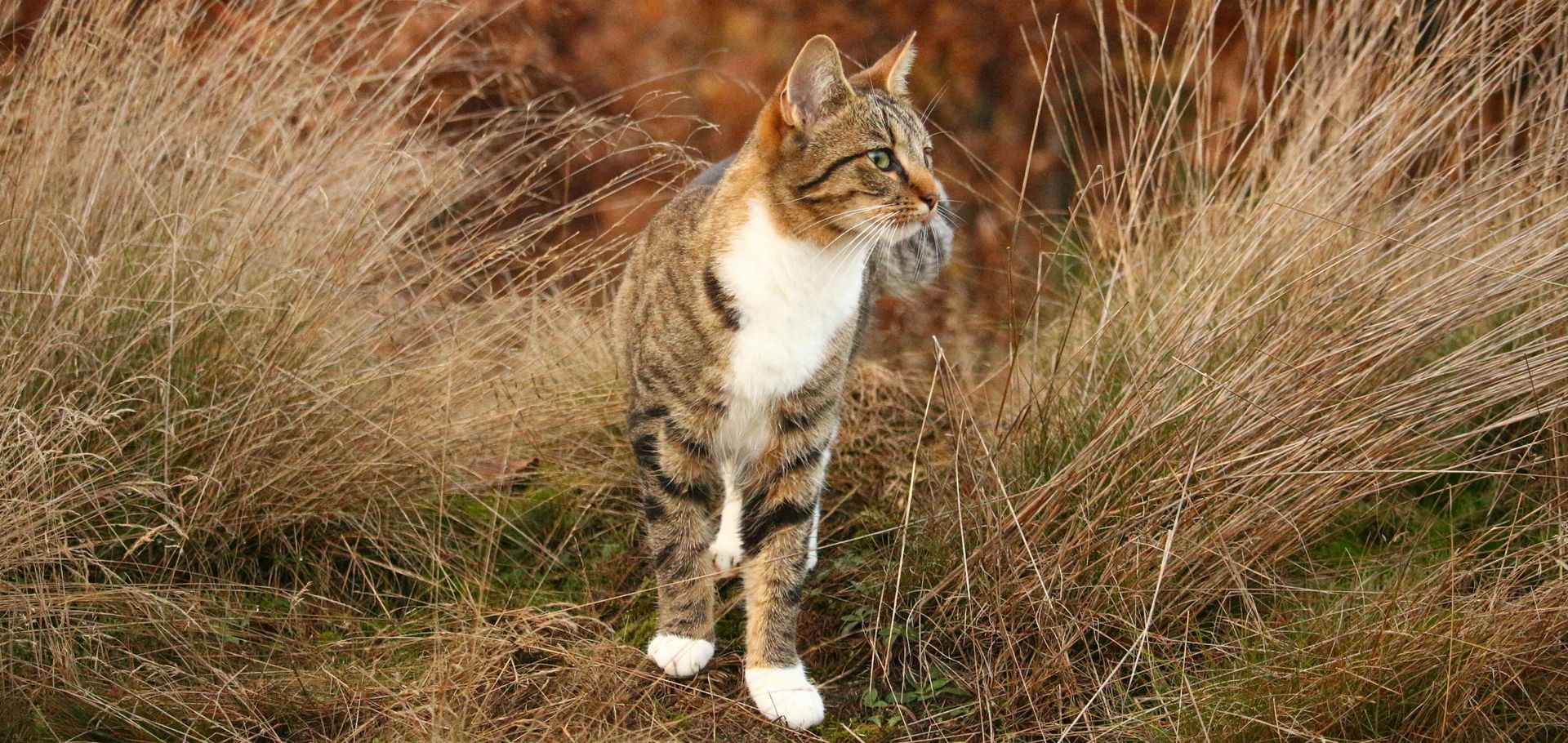
Seeing your feline friend suddenly trembling or shaking can be quite concerning. With their graceful and poised demeanor, cats aren't typically associated with tremors or shivers. However, there are several reasons why your cat might be experiencing these involuntary movements.
To learn about the different causes of cat shivers, treatment options, and tips to prevent them from happening in the future, keep reading ahead!
What is Trembling?
Before we dive into the possible causes of your cat's trembling, let's understand what trembling or shaking actually is. Trembling is an involuntary, rhythmic movement of your cat's muscles. It can manifest as small, subtle vibrations or more pronounced shivers. Cats can experience tremors throughout their entire body or in specific parts, whether their legs or tail.
When your cat is experiencing tremors, it’s often a sign that something’s wrong with their physical or emotional well-being. Paying attention to this symptom is important to investigate the underlying cause to ensure your pet’s health and comfort.
7 Reasons Why Your Cat Might Be Shaking
Seeing your pet cat shivering is quite concerning and you’d want to know as soon as possible the cause behind it. There are many reasons as to why your cat could be shivering. Here are 7 possible reasons why your cat is shivering. Remember that taking them to the vet would give you a much more accurate diagnosis. However, some reasons may not be as concerning as others, so you must be able to differentiate which ones require a trip to the vet.
Pain
One of the most common reasons for trembling in cats is pain. Cats are skilled at hiding discomfort, but if they're experiencing pain, it can manifest as shivers or tremors. Pain can come from different circumstances like injuries, arthritis, dental problems, or internal issues like gastrointestinal discomfort. If your cat is trembling and you suspect pain, it's crucial to consult a veterinarian for a thorough examination and appropriate pain management.
Irregular Body Temperature
Cats are sensitive to temperature changes, and extreme cold or shockingly high temperatures can lead to trembling. Hypothermia, in which the body temperature drops significantly, can cause shivering as your cat tries to generate heat. Conversely, a high fever can also trigger shaking as the body attempts to cool down. Ensure your cat has a comfortable shelter from extreme weather conditions, and seek immediate veterinary attention if you suspect temperature-related issues.
Fear & Anxiety
Just like humans, cats can experience fear and anxiety. When a cat feels threatened or stressed, their body may tremble. If your cat is shaking due to stress, you may see other signs of anxiety, such as dilated pupils, flattened ears, or hissing. Make sure that you can provide a safe and calm environment for them, as it helps to alleviate this issue and relieve them from any feelings of fear or anxiety.
Poisoning
Ingesting toxic substances can severely affect your cat's health, including trembling. Common household items like certain plants, chemicals, or human foods can poison cats. Contact your veterinarian immediately if you suspect your cat has ingested something toxic. Prompt treatment is essential to minimize the effects of poisoning.
Neurological Issues
If your cat has neurological problems, it can affect their coordination and muscle control, ultimately leading to trembling or shivering. Conditions like seizures, vestibular disease, or neuropathy can all manifest as involuntary movements. If you notice repetitive or unusual shaking, especially if accompanied by other neurological symptoms like loss of balance or altered behavior, consult the vet for a neurological evaluation.
Kidney Disease
Kidney disease is actually a common health issue in cats, particularly as they age. It has a tendency to create a buildup of waste products in the body, causing various symptoms, like trembling. Other signs of kidney disease may include increased thirst, frequent urination, and weight loss. If you suspect kidney disease, it's essential to have your cat evaluated by a veterinarian to determine the best course of treatment.
Hypoglycemia
Hypoglycemia, or low blood sugar, can result in trembling in cats. This can occur in diabetic cats, kittens, or cats with certain metabolic disorders. If your cat's trembling is accompanied by weakness, lethargy, or disorientation, it's crucial to check their blood sugar levels. Diabetic cats require careful monitoring and insulin management to maintain stable blood sugar levels.
Remedies For When Your Cat is Shaking
When your cat is trembling, your first priority should be identifying the underlying cause. Once you have a better understanding of why your cat is shaking, you can explore appropriate remedies:
Pain Management
If pain is the cause, your veterinarian may prescribe pain relief medication or recommend other treatments to alleviate your cat's discomfort.
Temperature Regulation
Ensure your cat is in a comfortable environment. Provide warm bedding during cold weather and access to cool areas during hot weather.
Anxiety Management
If anxiety is the culprit, consider using pheromone diffusers or consult with a veterinarian about anxiety-relief strategies.
Poisoning Treatment
Seek immediate veterinary care if poisoning is suspected. Treatment may include inducing vomiting, administering activated charcoal, or providing supportive care.
Neurological Support
For neurological issues, your vet will develop a treatment plan tailored to your cat's specific condition. This may involve medication or other interventions.
Kidney Disease Management
If kidney disease is diagnosed, your veterinarian will recommend dietary changes and medications to manage the condition.
Hypoglycemia Control
Diabetic cats will require insulin therapy and regular monitoring of blood sugar levels to manage hypoglycemia.
When to Take Your Cat to the Vet
While some cases of trembling in cats may not require immediate medical attention, others can be indicative of a serious underlying issue. Here are some red flags that warrant a prompt visit to the vet:
- Severe or Prolonged Trembling: If your cat's trembling is severe, frequent, or doesn't improve within a short period, seek veterinary care.
- Accompanying Symptoms: If trembling is accompanied by other concerning symptoms such as vomiting, diarrhea, lethargy, difficulty breathing, or loss of consciousness, don't hesitate to consult your vet.
- Ingestion of Toxins: If you suspect your cat has ingested something toxic, contact your veterinarian or an emergency pet poison hotline immediately.
- Sudden Changes: If your cat's behavior changes abruptly, especially if they become unresponsive or disoriented, seek immediate veterinary attention
Remember, it's always better to be safe than sorry when it comes to your furry friend's health.
How to Prevent Your Cat From Shaking
Prevention is often the best course of action when it comes to your cat's well-being. While you can't entirely eliminate the risk of trembling, you can take steps to reduce the likelihood of certain causes:
- Regular Vet Check-ups: Schedule routine veterinary visits and exams to monitor your cat's overall health and catch any issues early.
- Safety First: Keep your home cat-proof by removing toxic substances, securing electrical cords, and ensuring windows and balconies are cat-safe.
- Temperature Control: Provide a comfortable environment for your cat by adjusting the temperature and ensuring they have access to shelter from extreme weather.
- Stress Reduction: Minimize stressors in your cat's life by providing a consistent routine, a quiet space, and toys for mental stimulation.
- Balanced Diet: Feed your cat a well-balanced diet suitable for their age and health requirements to promote overall wellness.
- Exercise: Encourage physical activity through play to help maintain your cat's muscle tone and overall health.
Conclusion
When you notice your cat shaking or trembling, it's important not to dismiss it as a minor issue. Occasional trembling may not be cause for concern. Once the shaking persists or becomes severe, it can indicate an underlying problem that needs attention.
Remember that your cat relies on you for their well-being, so always prioritize their health and seek professional veterinary care when needed. Brewerton Hospital for Animals provides compassionate and comprehensive veterinary care for your beloved feline companion because we know your cat's health and happiness are worth it.
You can
schedule an appointment or
send us a message for concerns or inquiries, and we’ll be happy to assist!
SHARE THIS ARTICLE




